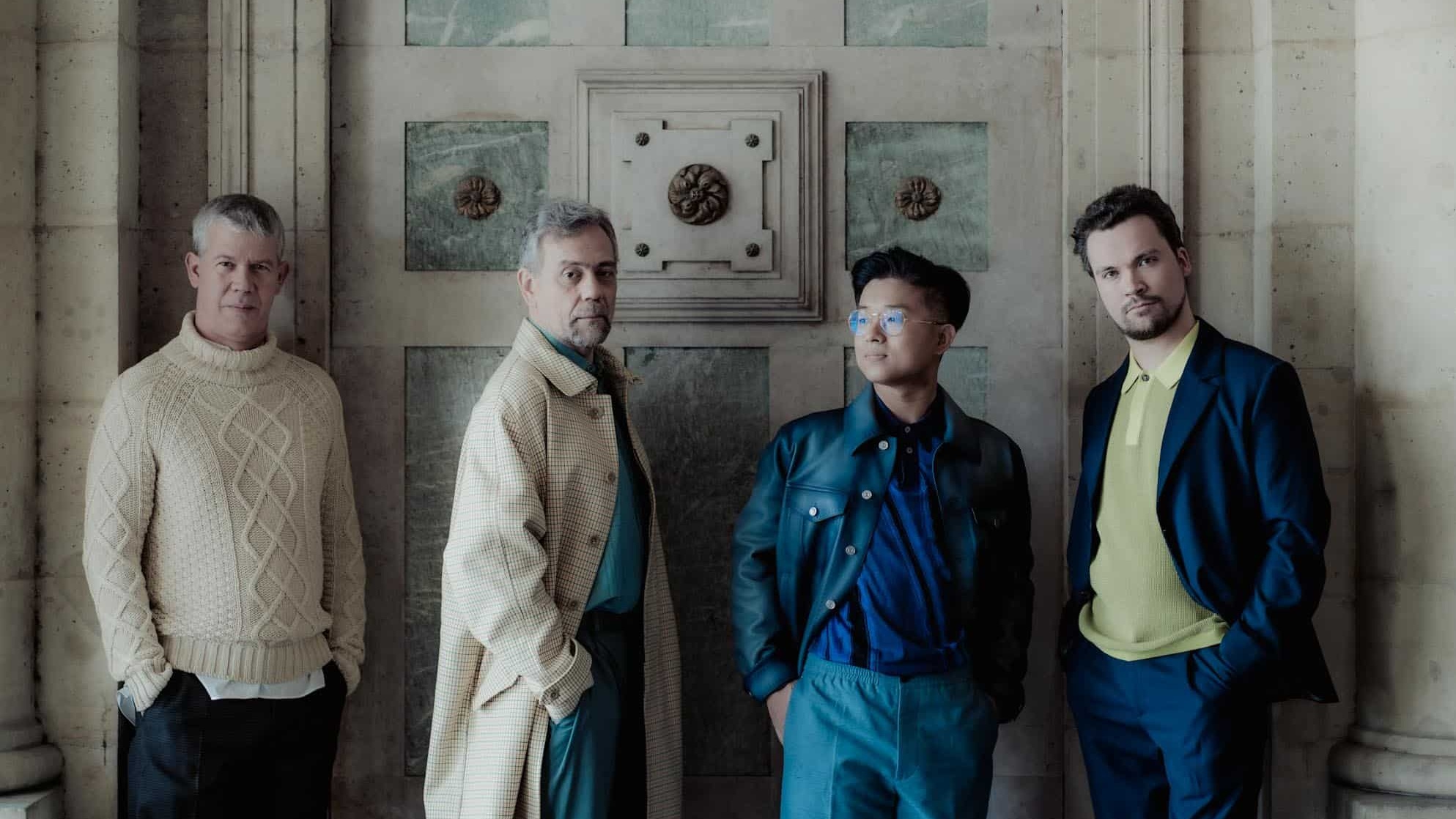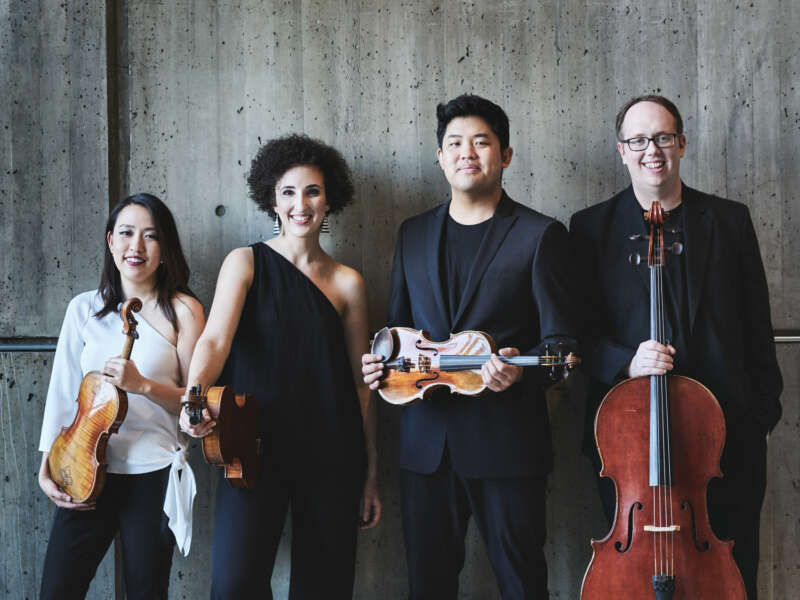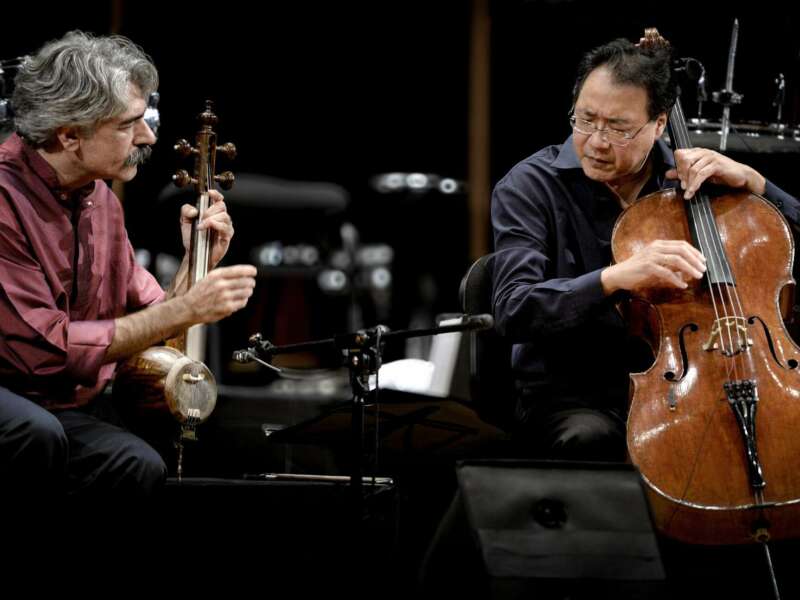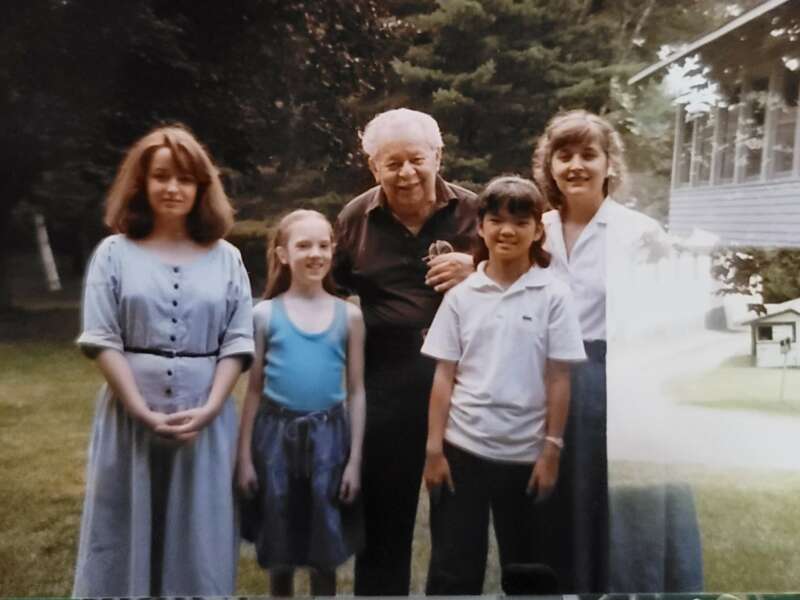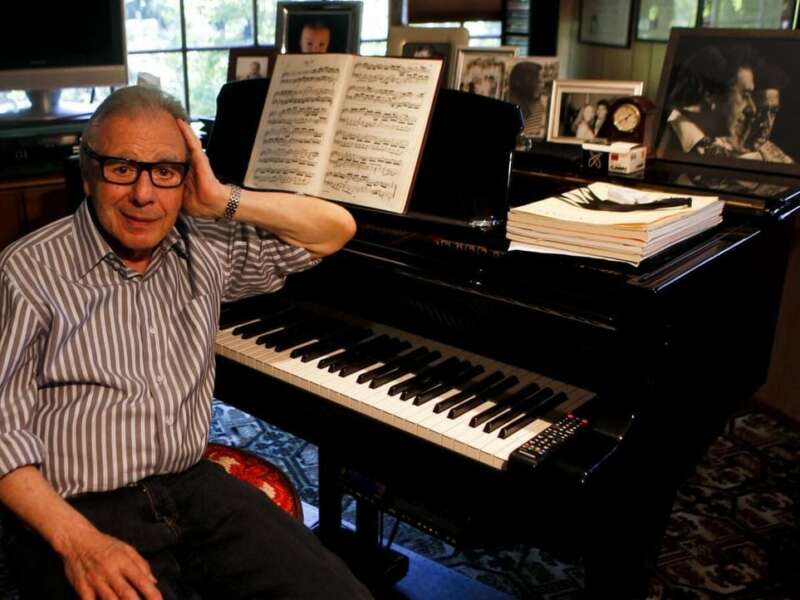Quatuor Diotima Discuss Their Latest Release: "Bruckner & Klose String Quartets"
Recorded on Pentatone, the CD presents pieces by Bruckner and his pupil, Friedrich Klose
The Violin Channel recently had a chat with the Quatuor Diotima about their latest CD: "Bruckner & Klose String Quartets." Released on Pentatone Records, the album presents Anton Bruckner's String Quartet in C Minor, Rondo in C Minor, and Theme with Variations in E-Flat Major, alongside Friedrich Klose's String Quartet in E-Flat Major.
Recorded at and in close cooperation with the Brucknerhaus Linz, the disc celebrates Anton Bruckner's bicentennial anniversary. We caught up with the ensemble to learn more.
Can you tell us about the program? How did you decide on these works?
It was the Brucknerhaus Linz which suggested to us (in 2021) to play the Klose Quartet as a companion piece to the Bruckner Quartet in c minor, and Jan David Schmitz of the Brucknerhaus was also kind enough to give us the then-unknown variations in E-flat major, drawn from the Kitzler studienbuch — of which we are recording the world premiere recording. Together, they gave a full picture of the Bruckner school and thought, and the idea of the transmission between Bruckner and Klose brought the program closer to our core repertoire, which includes the second Viennese school. The fact that Bruckner’s quartet was composed in 1862, Klose’s year of birth, also made a nice poetic coincidence. The Variations and Klose’s quartet are of such high artistic quality that recording them made absolute sense.
Klose studied with Bruckner in Vienna. Can you tell us more about the relationship between their writing?
Klose’s writing is a very powerful blend of the qualities of each of the "modernist school" composers at the end of the 19th century, just as Bruckner’s is also a blend of its own. Klose brings together the poetic and more specifically sarcastic imagery and virtuosity of Liszt, the dramatic and motivic impact of Wagner and the broad harmonic and structural language of Bruckner. But the biggest influence of Klose is Bruckner’s: you find in his quartet powerful unisons such as the ones you might find in his teacher’s eighth or third symphonies, powerful thematic returns and climaxes such as the motif of the second movement coming back triumphantly at the very end. Bruckner’s writing in the quartet bears in a lesser dimension the same attention to harmonic tension, thick contrapuntal textures (in the last movement), and also long moments of slow repetition of a motif building up to a climax.
Klose’s string quartet is subtitled "a tribute paid in four installments to my serious German schoolmasters." How does the influence of his masters show in the piece?
While it is unclear who exactly are the "serious German schoolmasters," the debt to Bruckner is evident - but to our understanding, also Wagner’s. The whole slow movement is a fantasy on a motif that is strangely similar to the Fliegende Holländer’s. The trio section of the incredible scherzo is a very personal take on those of Bruckner, namely the 8th symphony. The dedication of the quartet suggests that these masters "strengthened" Klose - and Bruckner’s fascination with the regularity of four- and eight-bar phrases also shows here. The whole piece is a monument to faith in the imaginative power of music.
Klose composed mostly pieces including voice. Do you feel this in his string quartet?
Actually, this quartet really stands out in the 19th century because Klose indicates a great number of "written out" rubato, great leaps in the individual voices, but also a certain number of "solos" and cadenzas, all three features which are quite rare in quartet writing. But yet the work remains a quartet in the purest definition of the term, in its dramatization of dialogue in the first movement, the work on texture and the spectacular knowledge of the instruments in the scherzo. It is very vocal in the way the individual voices seamlessly weave their lines towards each other, a personal take on Wagner’s "infinite melody," which was inspired by Beethoven’s quartet op.131.
Bruckner composed his string quartet as an orchestration exercise. How does this reflect on the piece?
The writing of this quartet is quite unique as well: it seems very simple at first, very organized formally between the voices, but under this clarity of discourse lies a real orchestral imagination! Each spot of the work - especially the first movement - reveals a clarinet, a horn, and a brass choir. This is Bruckner’s first essay in string writing - and while the influence of the sound world of the organ is more than perceptible, he achieves a very characterful and Schubertian mood - especially in the middle movements. The last movement, especially in its second version ("Rondo," also in this recording) creates a rich palette of colors, at times quirky, threatening, and graceful, with very simple means. We see it as a kind of romantic gothic version of a Bach fugue.
What are you hoping listeners will take away with them?
We hope that listeners (but it is true not just for those pieces!) will have as much pleasure listening to those pieces as we had working, performing, and recording them. The experience of listening to Bruckner’s quartet, which is an early piece, and very much "neglected," will be for sure different in that new context.
And discovering a masterpiece like Klose is always something extremely stimulating. We also think that it is impossible not to be moved by the superb variations!
What piece of advice would you give an up-and-coming quartet in regards to recording major works?
Well, it is a very difficult question. A young quartet (when it is a good one!) always dreams of being compared to "giants." I mean, nowadays, one can have access to generations of extraordinary performers through recordings, who set the norm to the interpretation of masterworks. The problem here is that when you only think in terms of comparison, you miss the incomparable. So the best is to be looking for something as personal and as artistic as possible.
In any case, masterpieces of the repertoire are jewels, and you can put light always on a new angle that will reveal a new aspect of its perfection.
Don’t be prudent, take risks!!
You can purchase the album at this link.
june 2025
july 2025


